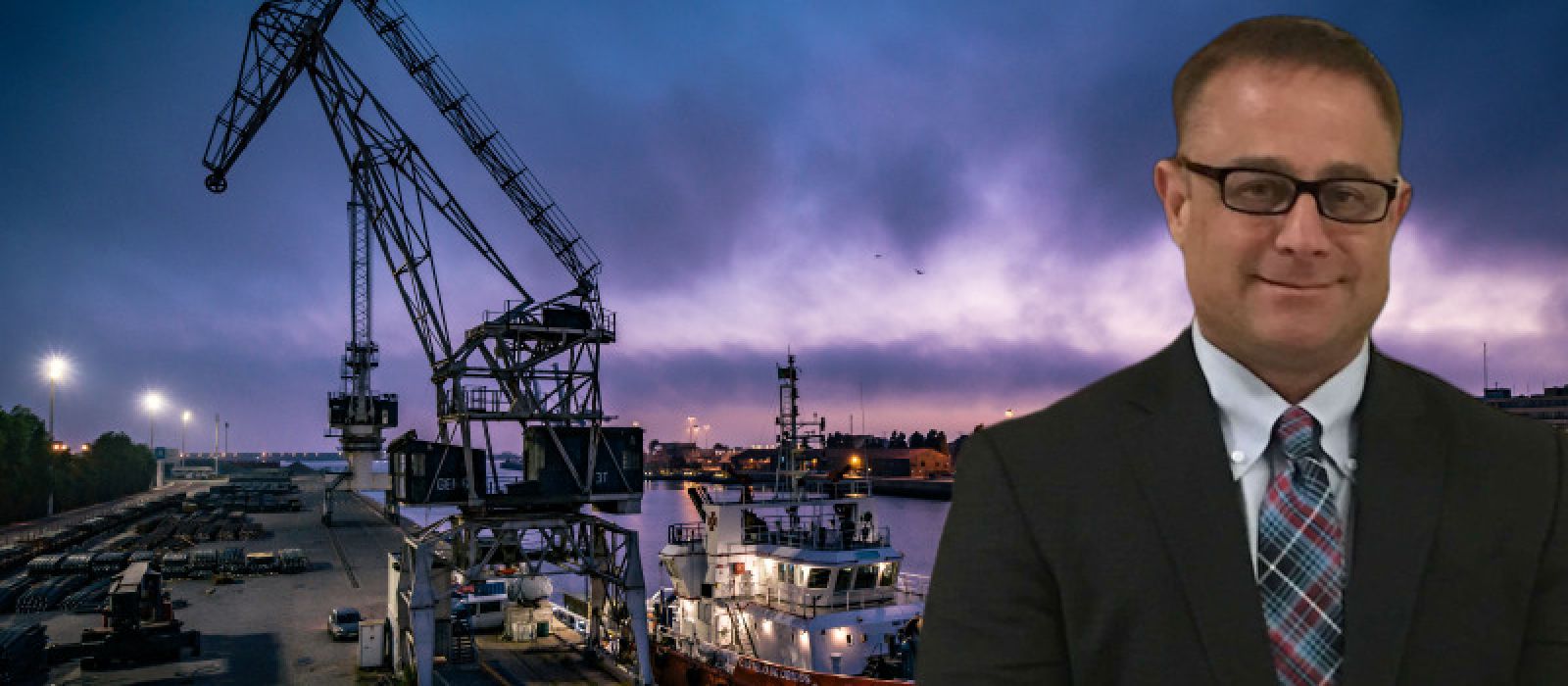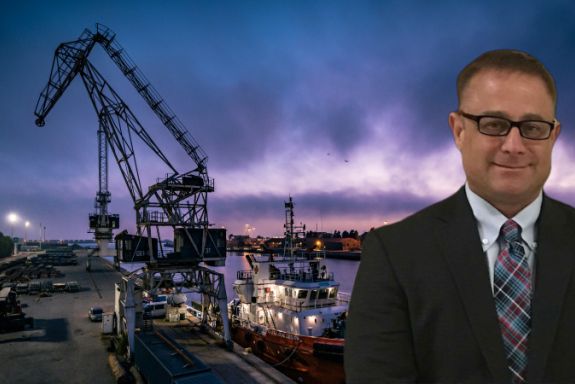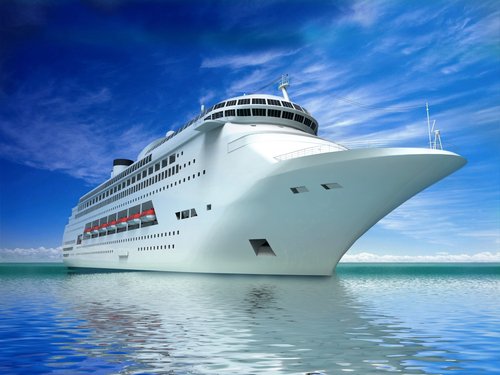

If we don’t win, you don’t pay.
NO WIN – NO FEE

ON CALL 24/7

U.S. Marine

Unsurprisingly, many legal advisers from other states will point people to Ehline Law Firm for their personal injury cases.
The Help You Need Every Time!
This is because the firm is knowledgeable and experienced in maritime law. Our lawyers can help an injured passenger, docker, oil rig worker, or seaman. Our excellent, helpful team can help plaintiffs resolve legal issues from or near any water location. Our admiralty & maritime lawyers assist clients with a broad range of cases, including contracts, employment claims, and personal injury matters on waterways, including oceans, rivers, ravines, and lakes.
People who travel by sea in and out of ports should only want the best, most high-quality maritime law lawyers on their side when they have been hurt aboard a ship and need help solving a legal issue involving settlement or litigation to recover money damages. Put our over 15 years of experience living and working in Los Angeles, California, to work for you or your close loved ones.
Also, this is the best team for admiralty law, which is why people need someone who can cover the following:
- Law of the ocean
- Crime in international waters.
To learn more about maritime law and how maritime law lawyers can help, continue reading below.
Everything People Need to Know About Maritime Law
Maritime law covered shipping and navigation.
This means some topics that may be covered during this work would be:
- Navigation
- Shipping
- Commerce
- Waters
- Seamen
- Wharves
- Towage
- Docks and piers
- Maritime liens
- Insurance
- Canals
- Recreation.
Piracy can also be found in maritime law, which is why maritime lawyers should always take it seriously. People who want to work with a team who knows maritime law should speak with a member of the Ehline Law Firm today.
How Can Maritime Lawyers Help?
Unsurprisingly, a maritime case can take up a lot of time for the person, which is why a maritime law firm should always be called.
A maritime lawyer can help with the following:
- Passengers that have been hurt on inland and coastal waterways
- Accidents involving large boats
- Accidents involving canoes
- Accidents involving kayaks.
A maritime law lawyer will need to be heavily involved with the case. This is because there are a lot of different aspects that people are unaware of. When people hire a personal injury lawyer who understands maritime law, they will need to ensure that they know if the case can fall under that specific law. If the law does apply, then this can make a big difference to every person who is seeking justice for maritime accidents.
How Can the Hurt Merchant Mariner Help?
The Jones Act was brought in to help merchant seamen injured at full sail. This means that any sea-related injury will fall under maritime law. The right maritime lawyer will be aware of this and ensure that this is followed through when pushing for damages.
What Are Maintenance Claims and Cure Claims?
Any seamen can claim cure and maintenance claims if they have been injured or become ill at sea. Seamen struggle to receive the right benefits with their job, which can result in an entire law dispute, but that does not need to happen when the right team has been called. A maritime law lawyer will know how to fight for the person’s right to have what they deserve.
Let’s Talk Damages in Los Angeles
A person can receive two types of damages when they speak with the right personal injury lawyer:
Economic Damages
Economic damages are monetary damages that can be easily calculated. When they are all added up, this number can be given to the insurance company or the employer so they know what the client is looking for in compensation. The maritime law lawyer will ensure they gather the correct evidence, making them more likely to receive full payment.
Some of the damages that people would be able to receive are:
- Medical Bills: People who have any medical bills because of what has happened can try to receive compensation. This means any prescriptions, therapies, or equipment needed can be charged.
- Hospitalization: Hospital bills can be outrageous, so this number can be added.
- Lost Wages: When someone has lost out on work, this can be added to economic damages because they still deserve to have the money they should have earned if they were working.
Non-Economic Damages
Non-economic damages can be challenging to prove, but the right maritime law lawyer will know what to do. These damages do not have an exact monetary value, but they also deserve some compensation. Admiralty and maritime law cover both economic and non-economic damages, which is why the lawyer will push for it in the damages report.
Some of the things that can be written down are:
- Pain and Suffering: When someone has been in an accident, they may have a lot of mental anguish. This can be added to a damages report, and compensation can be received. The lawyer will ensure that the victim will have the right amount placed into their report.
- Stress: People in Los Angeles can become highly stressed after an accident, which is why this can be added to the report. This can be spoken about if the stress is ruining the person’s ability to work or live everyday life.
Wrongful Death Claims in Los Angeles
Admiralty and maritime law does cover wrongful death claims. Families of people who have died while working can pursue a wrongful death claim. When a United States coast guard goes out to work, many family members may be worried about their safe return home. However, in the tragic event that they do not return, the family can be compensated.
Some of the things that they can receive compensation for in Los Angeles are:
- Funeral Costs: Funerals are expensive, especially when a family is trying to pay for themselves after losing a family member. This can be placed in the claim so that they may receive money for the funeral. People will appreciate this money because it can help take pressure off the day.
- Future Wages: If the victim provided money to the household, then the maritime law lawyer can add what they would have made to the report. When someone dies suddenly, it shocks the system, but families are left fighting to live alone. This doesn’t seem right. The right team will ensure that the future wages the deceased would have made will be placed in the report.
- Loss of a Companion: When a loved one has passed away, this can cause stress and heartache for their companion. This can be placed in the claim, and monetary value can be added.
How Does the Maritime Law Affect Commercial Fishermen in Los Angeles?
Despite the many technological advancements, commercial fishing is dangerous for anyone to enter. Even though the transportation law is added when someone is out, this does not mean that the fishermen are adequately protected. Since the demand has continued to grow, but more problems continue to arise, fishermen are getting in more trouble when they are out at sea.
They can get hurt or become too tired to work when forced to work longer hours. If this happens, the fishermen are not working in a safe environment, so a maritime law lawyer should be called immediately to help protect the person’s rights.
Does the Admiralty and Maritime Law Only Affect Fishermen?
Admiralty and maritime law have been implemented to help everyone working on the sea. This means that the United States Navy, fishermen, captains, and deckhands are protected by the admiralty, maritime, and transportation law.
Meanwhile, the Jones Act covers any person who has to be a part of a tragic event while onboard the boat. During an accident, this can be a captain, processor, engineer, or deckhand.
What Are Longshoreman’s Claims?
There is a federal act called the Longshore and Harbor Workers Compensation Act. This act benefits the employer whether they were at fault, but the payment will be much less than an employer that files an employer negligence claim.
The act stops the injured worker from suing the employer for negligence. However, this does not mean the employee cannot bring a claim against a third party like the manufacturer or the shipowner. Any victim who wants to file this claim can do so with a lawyer under the admiralty and maritime law.
How Is the Maritime Law Connected to Personal Injury Victims?
Admiralty and maritime law cover cruise ship victims, so people who have been hurt while on a cruise can speak with a lawyer to try and receive compensation.
How Will Admiralty Law and Maritime Law Be Applied?
This will all depend on the flag that is being flown by ship. If the ship’s flag is an African flag, then the ship would be subject to African admiralty jurisdiction. However, depending on the law, these laws may benefit the injured passenger more than the U.S. law. This is up for debate, though, depending on the situation.
The Port of Departure Will Also Be Taken Into Consideration
The right lawyers will understand that if the LLP Los Angeles has been deported from a Los Angeles port, they may be subject to the United States laws no matter where the ship was when the accident occurred. However, if the flag is not the United States flag, then the super lawyers on the case will need to figure out how to put in a claim against the responsible party.
Schedule a Free Consultation With Superior Maritime Lawyer in Los Angeles, CA, Today
Admiralty and maritime law can be challenging to navigate, so people will send their clients to the super lawyers at Ehline Law Firm. They understand many parts of the law, from criminal defense to admiralty and maritime law. However, they are here for everyone needing help with their injury claim and naval cases in all nearby cities, including Long Beach, CA, and Beverly Hills.
The team is knowledgeable and experienced regarding these cases, so they will always point every client in the right direction when advising maritime cases. The core practice of this team is to ensure that every person is being looked after by the best because no one should be struggling when they are already going through a difficult time.
Call (213) 596-9642 today for a free consultation and learn how this super lawyers team can assist every person with their maritime case.
Other Common Carrier Accidents
- Limousine Accidents
- Bus Accident
- Bicycle Accident
- Taxi Cab Injury
- Lyft Accidents
- Uber Accident
- HopSkipDrive Injury Attorney
- Train Accident
- BulletProof Armored Vehicles
- DHL Accidents
- FedEx Truck Accidents
- GrubHub Accidents
- UPS Delivery Truck Accident
- LAX Airport Accidents
- Parking Structure Incident Attorney
- Gas Station Accidents


